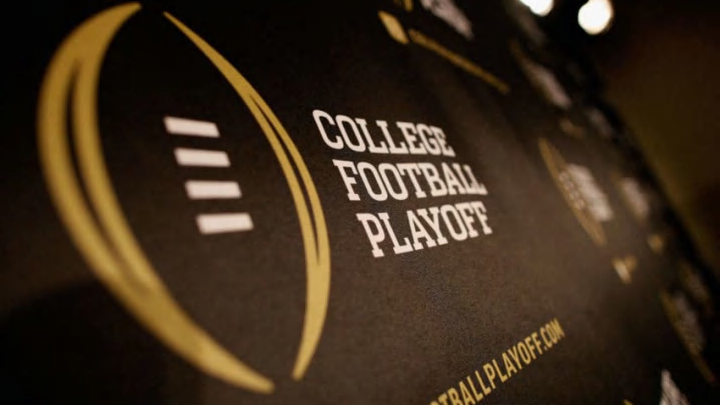Lately, Notre Dame Football has found itself in the College Football conversation. Let’s take a look at the numbers involving Notre Dame’s playoff outlook.
Seth Walder from ESPN Analytics released a new metric for predicting the four teams who will make the College Football Playoff: The Playoff Predictor.
In short, ESPN Analytics isolated five factors that they believe offer the best indication of the teams that will make the College Football Playoff. Those factors are:
- Strength of Record
- FPI
- Number of Losses
- Conference Championships
- Independent Status
You can read more about the algorithms used by ESPN Analytics in the link above. But the end result of their number-crunching was that Notre Dame has a 42% chance of making the College Football Playoff this year. That is good enough for the four seed according to ESPN, the Irish only behind Clemson (67%), Alabama (47%), and Georgia (46%).
I really have no interest in diving into the formulas utilized to come up with these numbers. Heck, I am not even interested in discussing whether 42% is overvaluing or undervaluing the Fighting Irish. But I am interested in talking about how little these metrics and numbers in front of team names often mean at the end of a season.
Obviously, the metrics matter so far as the playoff committee using them to vote on who is in and who is out. The committee needs something to help guide their choices after all. This happens, ultimately, at the end of the season. However, the season has not even started yet and here we are talking about a team’s chances to make a playoff that will be played in January 2019.
The problem is that these numbers change almost daily once the season begins. And oftentimes, these numbers change because of elements that are out of the hands of both the analytics people and the teams that are playing. The thing that a team has the most control over (and you can argue this too somehow I’m sure) is winning games. A team has their schedule in front of them. If they win 12 games, they are more than likely in. But again, this is more than likely.
Remember the heated debates flying around last year about an undefeated Wisconsin team potentially not making the playoff? If this scenario did indeed play out, it would be a prime example of a team that did all it could do meanwhile getting blockaded by all things out of the team’s control, things like their opponent’s strength of record and the average FPI of their opponents. When there very possibly could have been an undefeated team left out of the playoff altogether at the end of last season, how can we justify buying into metrics that are telling us what teams will most likely get into the playoff before the season starts?
Look at rankings, for example. Notre Dame came in unranked in 2012 and eventually came into the BCS Championship game as the #1 in the country. In 2016, Notre Dame had a preseason ranking of #10 and ended with a 4-8 record. It goes without saying they ended that season unranked.
It is undeniable, however, that these early rankings and metrics do indeed drive a narrative throughout the course of the season. And as the performance of teams start to square with the prophecies laid out for them in these preseason numbers, the teams seem to gain even more traction with both the media and the playoff committee.
Look, I am not saying that a team can’t end up being right where a computer or a human committee said they should be by the end of a season. I am just saying that when that does happen, it is more about being lucky than those number-crunchers being good. There is way too much that happens in 12 or more games of a team’s football season to have me buying into rankings or predictions now.
I am always first in favor of the eye test. You do not need preseason metrics to see that Alabama and Clemson have a good shot of getting to the playoff. You just need decent vision.
Are rankings and predictions fun? Absolutely. Do they create hype? Undoubtedly. But these preseason rankings can never account for a Notre Dame loss to South Florida. Or Tulsa, Northwestern, Navy, or Duke, just to name a few.
